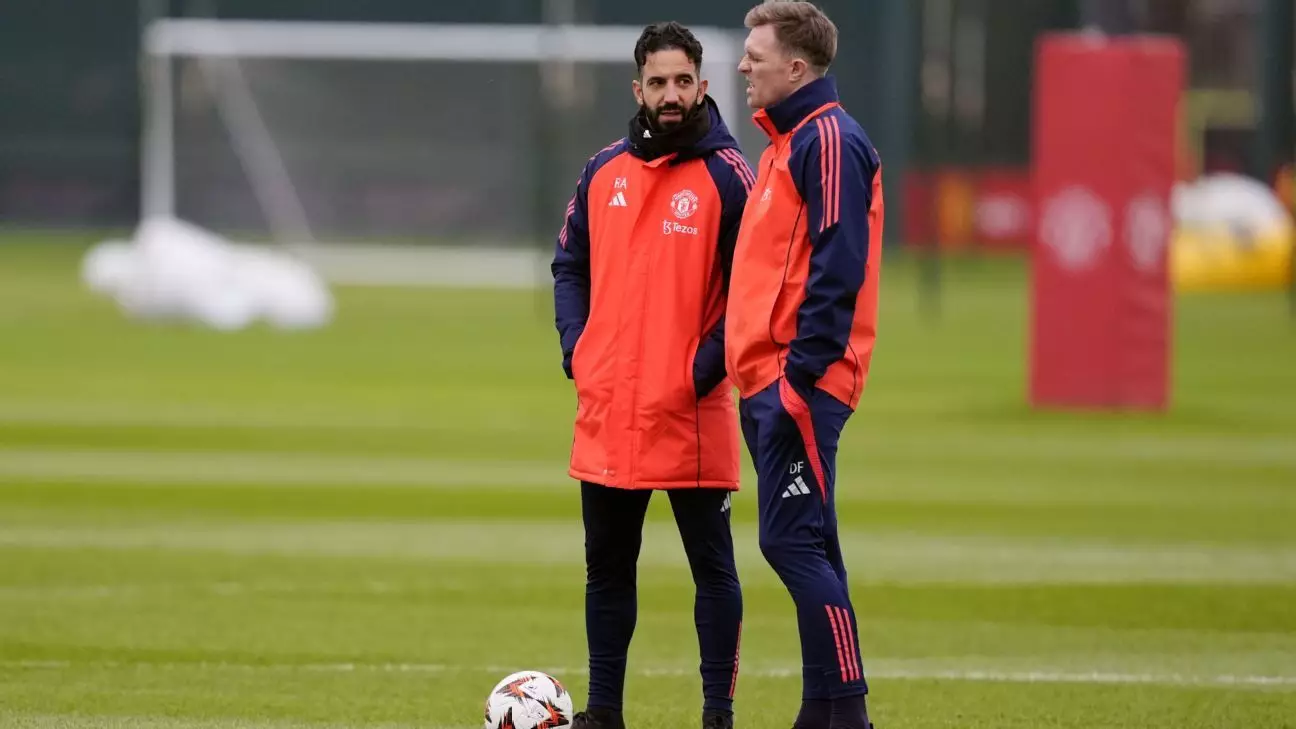The recent turbulence at Manchester United, with Dan Ashworth’s abrupt resignation from his role as sporting director, poses significant questions about the club’s direction during a pivotal time. Under Sir Jim Ratcliffe’s ownership, team dynamics and organizational stability have become crucial not just for immediate performance but also for long-term strategic initiatives. Coach Ruben Amorim’s perspective and the subsequent leadership transitions present an opportunity to analyze how clubs can adapt and maintain their strategic focus in the fast-paced world of football.
Ashworth’s unexpected exit only five months after being heralded as an essential asset raises eyebrows regarding the stability of leadership at the club. His arrival was intended to provide clarity and direction under Ratcliffe’s new vision. The announcement of Jason Wilcox stepping in as the acting technical director emphasizes a quick response to this disruption. Amorim’s reactions offer insight: he emphasizes that while individual departures are unfortunate, they shouldn’t derail collective progress. His own position as a newly appointed manager, just transitioning from Erik ten Hag’s tenure, further complicates the management landscape.
Amorim articulates a pressing need for focus amidst the shakeup, highlighting the importance of support from all levels of management—including the ownership group and the academy. His perspective is emblematic of a manager needing to navigate complex interpersonal relationships while emphasizing performance and outcomes. Unity is key, but the challenge lies in ensuring that vision and execution are not hindered by personnel changes.
Wilcox’s leadership in upcoming recruitment efforts is critical, particularly with January’s transfer window approaching. According to insiders, United is poised to entertain offers for first-team players, suggesting a calculated approach to fund reinvestment in the squad. This is where the emphasis on players’ profiles and team needs becomes paramount. Amorim recognizes the importance of understanding the current player roster and leveraging the academy system effectively.
His comments on the team’s physicality and strategic positioning during set pieces reflect a nuanced understanding of the squad’s limitations and potential. The emphasis on constructing a “clear profile” for players signals a departure from impulsive buying based on star power, instead moving toward fostering a cohesive unit that aligns with tactical goals. This is a calculated approach that could prove beneficial as the team is remolded.
Amorim’s frank acknowledgment that underperformance could lead to player departures signals a stark reality in the professional sports context: the stakes are often high. The intertwining relationship between player retention, performance results, and managerial longevity unfolds as a central theme in professional sports. His intent to enforce a performance culture will be vital, as maintaining morale and engagement is crucial for both current and prospective players, especially in light of such fluid changes.
As the team prepares for their Europa League clash against Viktoria Plzen, Amorim reflects on the critical nature of progressing in the tournament without having to engage in playoff matches later in the season. It is a dual challenge of achieving immediate results while laying the groundwork for long-term success, illustrating the complex balancing act faced by coaches in elite football.
Manchester United finds itself at a crossroads marked by shifts in leadership and urgent demands for performance. Amorim’s adaptability paired with the club’s ambitious vision offers a framework to navigate the uncertainties of football management effectively. While the pressure mounts during this transitional phase, the emphasis on structured recruitment and a strong team identity serves as a beacon to guide the club through turbulent waters.
As United steps into this next chapter, maintaining clarity, focus, and resilience will be of the essence. The recent shakeup, while unsettling, could potentially catapult the team to a renewed competitive edge if approached strategically—with a balance between addressing immediate needs and planning for future aspirations firmly in sight. The path forward is filled with challenges, yet the potential for growth remains palpable within this storied football institution.

